
Irish students receive boosted Leaving Cert results for third year running
Unlike in the UK, grades were still boosted to reduce the effects of the Covid-19 pandemic.
2023-08-25 19:15
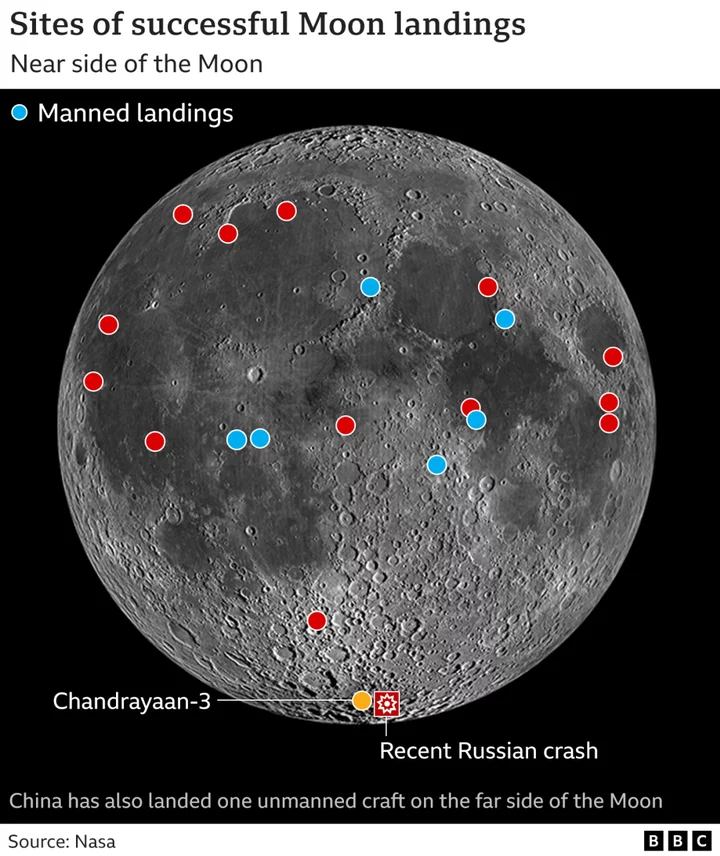
Chandrayaan-3: India releases first video of lunar rover Pragyaan's Moonwalk
India's space agency Isro's footage shows Chandrayaan-3's rover Pragyaan for the first time ever.
2023-08-25 15:18

EU safety laws start to bite for TikTok, Instagram and others
Nineteen large platforms have to start complying with new rules as soon as Friday or risk big fines.
2023-08-25 07:16
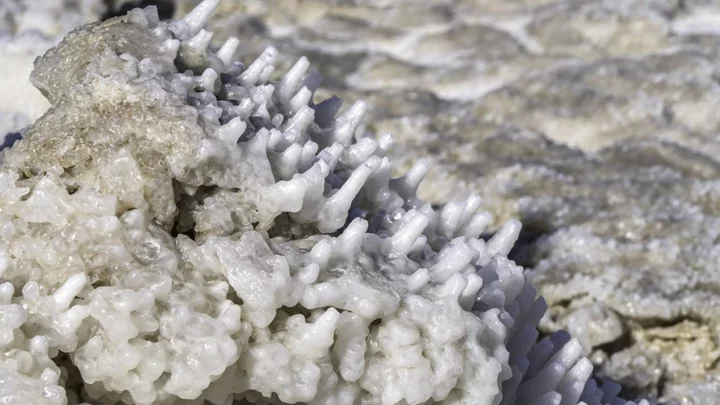
150 million year old water trapped in salt contains secrets to our ocean history
The key to discovering the secrets of life at the bottom of the ocean 150 million years ago has been discovered, and it was trapped inside ancient salt formations this whole time. Experts have been able to uncover the Earth's geological history y studying tiny water particles which have been preserved in crystals for millions of years. It’s all to do with analysing the amount of lithium which is trapped in samples rock salt. As it turns out, the level of lithium can tell us far more about atmospheric conditions in the oceans over the ages than most of us previously realised. Geochemists Mebrahtu Weldeghebriel of Princeton University and Binghamton University and Tim Lowenstein of Binghamton University have published their findings in a new study. The rock salt they studied, known as marine halite, came from across the world including the US, Europe, Asia and Africa. A total of 639 samples were taken from 65 halite crystals dating back to 150 million years ago. "There is a close link between ocean chemistry and atmospheric chemistry," Weldeghebriel said. “Whatever changes happen in the ocean also reflect what's happening in the atmosphere." "The oceans and atmosphere are connected to one another, and how they change is related," Lowenstein added. "Everything is connected." Most notably, their findings have helped to create a better understanding of tectonic movement on the seafloor. The reason the presence of lithium was so important is due to what it tells us about hydrothermal activity. The amount in the water indicates the levels of chemicals and heat which was being released into the oceans by vents between tectonic plates. As tectonic plate activity declined, there was a global drop in lithium levels. Instead, it was replaced by a rise in magnesium and calcium. The reduction in activity would also have meant less carbon dioxide being released into the atmosphere, which could potentially have been a factor in the temperature drop which resulted in the ice age. Sign up for our free Indy100 weekly newsletter Have your say in our news democracy. Click the upvote icon at the top of the page to help raise this article through the indy100 rankings.
2023-08-25 00:48

Stoke-on-Trent Ukrainian student passes GCSEs in four months
Halyna obtains the grades she needs for college despite studying in her third language.
2023-08-24 21:48

Somalia TikTok: Government's planned ban leaves creators anxious
A ban, due to come into effect in Somalia on Thursday, could leave some creators without an income.
2023-08-24 21:15

A new 'Antarctica' accent has been discovered by scientists
Antarctica might be the only continent on Earth with no natural human habitation, but it’s emerged that an “Antarctica accent” is very much a thing. Despite having no locals, thousands of scientists have made up an ever-changing population in research stations over the years. The continent is so isolated and the level of interaction between researchers is so intense, that a common accent is beginning to emerge there despite people coming from different parts of the world. At its busiest points in the year during the summer, Antarctica is home to around 5,000 people. Only around 1,000 people live there during the winter months. The idea of accents changing due to human interaction on Antarctica is no different to the phenomenon seen throughout history at a glacial pace. However, given the very specific sample size, it’s an opportunity for scientists to study it at a much quicker rate and on a much smaller scale. Experts at the Ludwig Maximilian University of Munich published a study in 2019 which focused on the change in accents observed in 11 people who took part in the British Antarctic Survey. @human.1011 There’s an Antarctic Accent! #language #linguistics #english #antarctica Of the 11 who were studied, eight came from England, one from the US, one from Germany and one from Iceland. Their voices were recorded every six weeks, and the team found that over time they developed longer vowel sounds. There was a physical change too, with participants pronouncing the “ou” sound in the front of their mouths rather than the back of their throats. Speaking to IFL Science, Jonathan Harrington, study author and Professor of Phonetics and Speech Processing at the Ludwig-Maximilians University of Munich said: "The Antarctic accent is not really perceptible as such – it would take much longer for it to become so – but it is acoustically measurable. "It's mostly an amalgamation of some aspects of the spoken accents of the winterers before they went to Antarctica, together with an innovation. It's far more embryonic [than conventional English accents] given that it had only a short time to develop and also, of course, because it's only distributed across a small group of speakers.” Sign up for our free Indy100 weekly newsletter Have your say in our news democracy. Click the upvote icon at the top of the page to help raise this article through the indy100 rankings.
2023-08-24 20:51
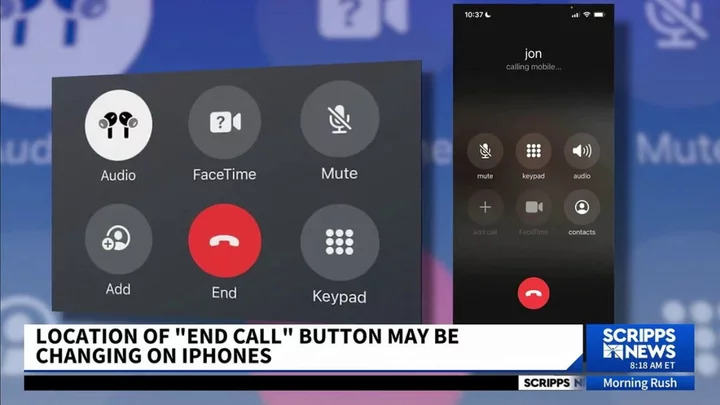
Apple issues danger warning to iPhone users
The Apple iPhone is one of the most popular mobile devices in the world, but the company has issued a new danger warning to users that could help save lives. Popular among those particularly in the West, iPhones are prevalent in most people’s everyday lives, ever since the first one was released in June 2007. However, Apple has issued a stark warning for those who leave them charging overnight, highlighting a risk of fire, electrocution and injury. The warning by Apple comes under its updated user guide under the article titled, “Important safety information for iPhone” in which it is warned that charging phones over long periods poses a risk. It read: “Use common sense to avoid situations where your skin is in contact with a device, its power adapter, or a wireless charger when it’s operating or connected to a power source for long periods of time. “For example, don’t sleep on a device, power adapter, or wireless charger, or place them under a blanket, pillow, or your body, when it’s connected to a power source. “Keep your iPhone, the power adapter, and any wireless charger in a well-ventilated area when in use or charging. Take special care if you have a physical condition that affects your ability to detect heat against the body.” The company confirmed consumers can use “‘Made for iPhone’ or other third-party cables” that are compliant with relevant safety regulations. But, it added: “Other adapters may not meet applicable safety standards, and charging with such adapters could pose a risk of death or injury.” Sign up to our free Indy100 weekly newsletter Have your say in our news democracy. Click the upvote icon at the top of the page to help raise this article through the indy100 rankings.
2023-08-24 19:52
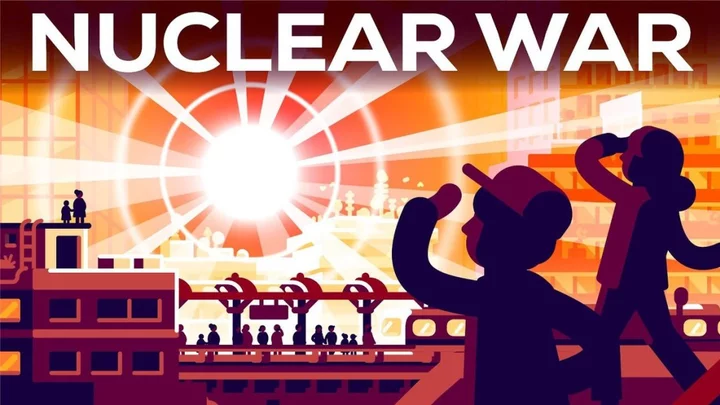
Terrifying video shows how long leaders have to act after a nuclear weapons launch
A terrifying video has shown just how little time world leaders have to act in the event that nuclear weapons are launched. In the video, shared by the educational channel Kurzgesagt, a potential scenario of a country launching nuclear weapons is set up, with a commander talking the viewer, from the point of view of a world leader, through what is going on. The commander explained that an enemy had released nuclear weapons primarily targeting military bases and nuclear command centres. Secondary targets include oil refineries, power stations and ports. The commander grimly explained: “Deaths from the blast and burns may be a few million today. It’s morning rush hour and there’s not much to be done for people stuck in traffic.” Radiation effects from the blast, the commander explained, would be dependent on the weather and direction of the wind. Those in populated urban areas would be less able to flee and there would be “dozens of millions of deaths” in just a few weeks. It is explained that the 400 nuclear weapons in silos need to be launched “now” before they are taken out by the enemy warheads. Nuclear-capable bomber planes need to take off within two minutes to stand any chance of getting out of the blast. The horrifying intensity of the nuclear war continues as the commander explains that there is nothing that can be done for civilians and that if the order is not given immediately, the war could be over before they even have a chance to retaliate. Thankfully, the scenario was only fake, but the video ended by explaining that the world has been very close to a similar situation unfolding several times due to mistakes or errors – and that it only takes one person to give the order. In 1955, a Russian radar detected what it thought was a missile launch from a submarine, causing its military to be on high alert. But, it turned out it was actually a scientific rocket studying the auroras. Sign up to our free Indy100 weekly newsletter Have your say in our news democracy. Click the upvote icon at the top of the page to help raise this article through the indy100 rankings.
2023-08-24 19:23

How to help your teen with comparison culture on GCSE results day
Whether your child’s GCSE results are high, low, or somewhere in between, one thing is inevitable – they’ll compare them with their friends’ grades. This comparison culture, which is far more pervasive because of social media, can leave teens feeling inadequate because their results are worse than their mates, or make their friends feel useless if roles are reversed. But although there’s no getting away from teenagers comparing their results both on and offline, what can parents do to try and limit the damage this it can cause? Former teacher Dr Julia Clements, principal educational psychologist at the children’s mental health charity Place2Be, says the comparison of results will undoubtedly impact some teenagers’ wellbeing. “Your teenager is bound to compare their results with their peers at the same school, but also through social media,” she acknowledges. “Although this comparison is inevitable, it may be harmful for your child’s wellbeing – especially if they’ve not done as well as expected. “Indeed, the term ‘compare and despair’ can be especially pertinent on days like today.” Sharon Davies, CEO of Young Enterprise, a charity which helps young people navigate the changing world of work, adds: “The pressure to measure up to their friends’ achievements can be overwhelming, leading to feelings of inadequacy or disappointment.” So how can parents help their teens? 1. Ask how they feel If your child is down on themselves and rating themselves negatively in comparison to their friends, they may reject any positives and praise parents provide, Clements warns. “It may be more useful, in the first instance, to ask them how they’re feeling, and to acknowledge and validate difficult feelings,” she advises. Such feelings may include disappointment, sadness, anger, shame, or feeling as if they’ve let themselves – and you – down. “If your child is feeling like this, it’s important to give them the message that you love them unconditionally and you’re proud and pleased to be their parent because of who they are – not because of the grades they achieve,” she stresses. 2. If they’ve done better than their friends… If your child has achieved good results, which may be better than some of their friends, then they’ll want to celebrate. But while celebrating is of course a great idea, Clements suggests: “You may want to talk with them about how to be sensitive and compassionate towards their friends who haven’t done so well.” 3. Help them turn a negative into a positive Consultant clinical psychologist Dr Nihara Krause specialises in teenage mental health and is working with the Talking Futures campaign to help parents engage their children in meaningful conversations about their futures. She says if a young person doesn’t get the grades they were hoping for, they may be highly critical of their performance in comparison to their peers. But she suggests parents show them how to turn their negative thinking around. “Parents should encourage their children to focus on recognising the approach they took to exams this time round and take steps to reflect on what they could do to achieve a better result in the future. Focus on what helps a young person gain their own personal best, no matter how their results compare with others.” 4. Don’t ask about their friend’s results or post about them Krause says parents should try to celebrate their child’s achievements for what they are and avoid asking about their friends’ results. “To avoid comparison, parents should also avoid sharing their child’s results on social media,” she says. 5. Don’t be too hard on yourself Clements points out that comparison culture may not just affect teenagers – if their results aren’t as good as expected, mums and dads might start comparing their own parenting during the revision and exam period with other parents whose kids have got better results. “As a parent or carer, you may also be drawn into unhelpful comparisons with others,” says Clements, “and you may question the amount of support you were able to provide your child in the run up to their exams. However, today is not a day for self-criticism or judgements – some self-compassion is important at this time.” 6. Reach out for support This might be the first results day many parents have gone through with their child, and while comparisons with other teens may well have been unhelpful, Davies points out that schools will have career advisers and teachers available who can offer support and advice. There are also online forums and blogs where those in similar situations share their experiences. She says: “No-one is expecting you to have all the answers – that’s why there’s support available.” Read More Charity boss speaks out over ‘traumatic’ encounter with royal aide Ukraine war’s heaviest fight rages in east - follow live Women more severely affected by ME, study claims 4 hacks to get teens off the sofa and get active – as study warns of heart damage Taking adult education classes may lower risk of dementia, study suggests
2023-08-24 13:47
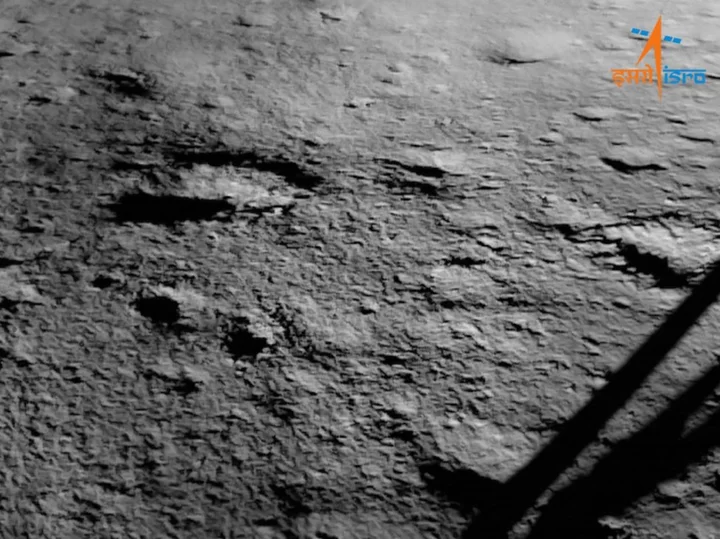
Chandrayaan-3: India lunar rover Pragyaan takes a walk on the Moon
Chandrayaan-3's rover Pragyaan exits Vikram lander and takes first steps near the little-explored south pole.
2023-08-24 13:27
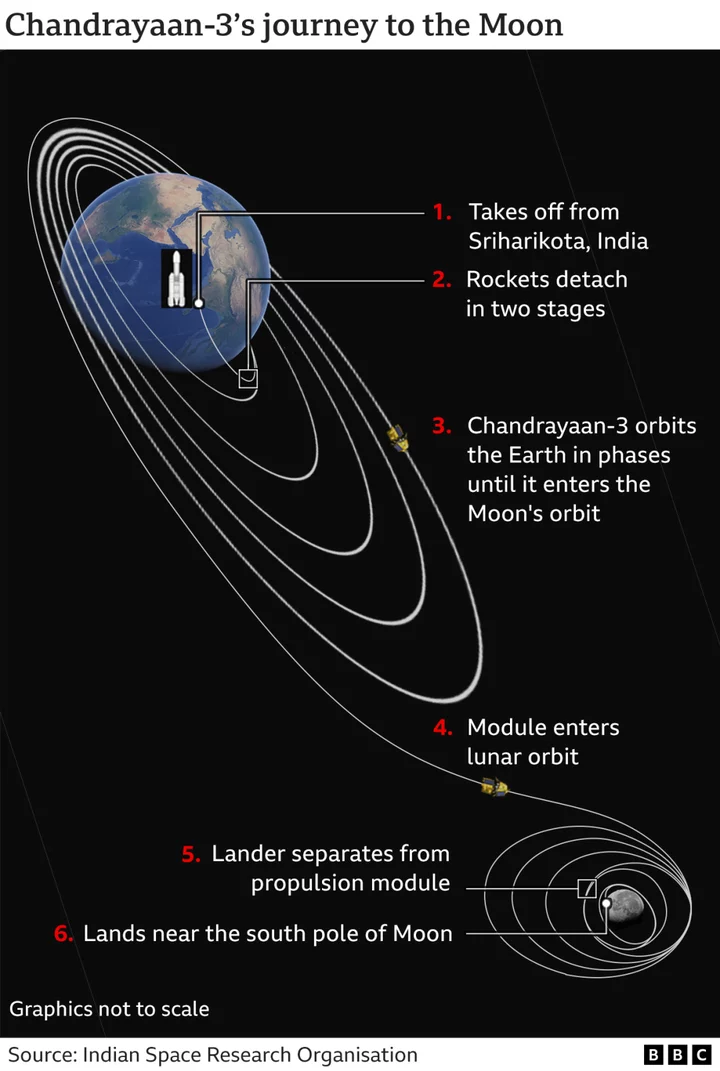
Chandrayaan-3: India makes historic landing near Moon's south pole
Chandrayaan-3 has created history by landing near the little-explored south pole of the Moon.
2023-08-23 22:28
